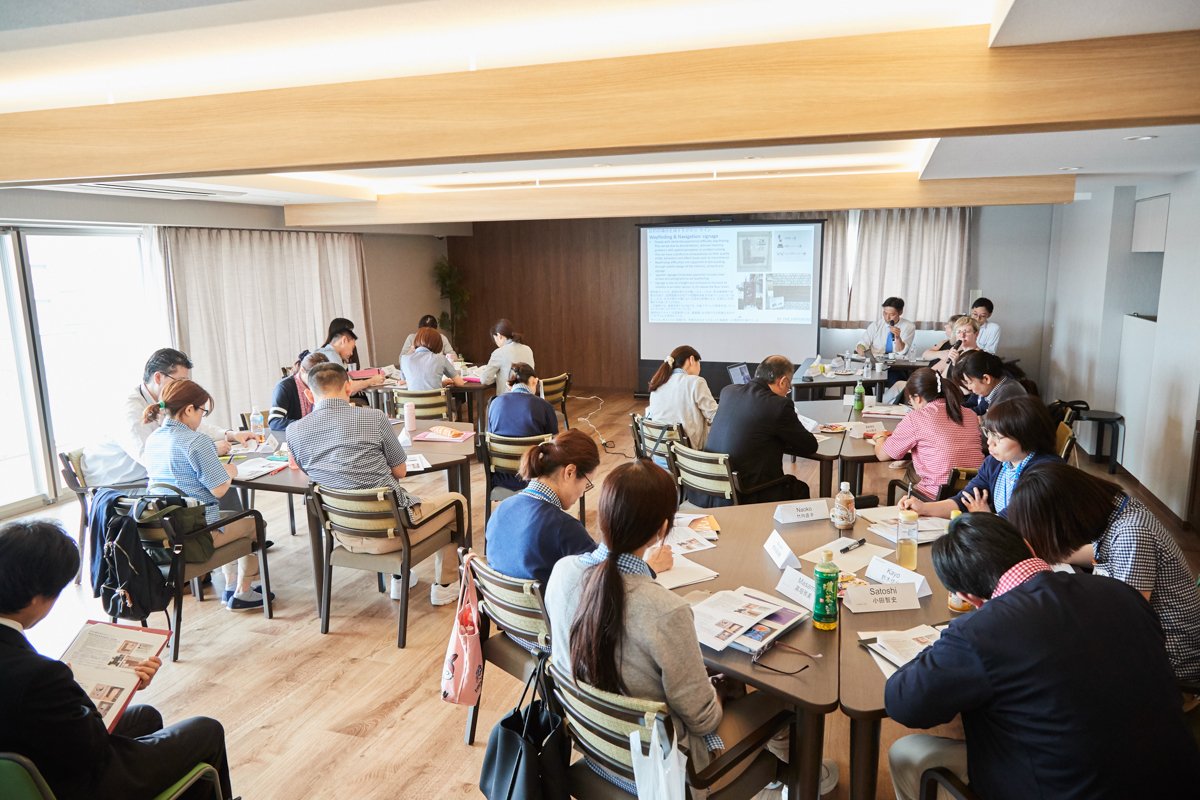News Search
Welcome to our News Search. You have arrived here because you have searched a category, tag, year, or month. Below you can find the results of your search. Alternatively, you can return to the News Page using the button.
Filter by:
Tag
- Additional Support Needs
- Art
- Australia
- Best Practice
- Best Practice in Dementia Care
- CEDAR
- Care
- Carers
- Carers Hub
- Changes in Presentation
- Community
- Consultancy
- Delirium
- Design
- EADDAT
- Events
- Housing
- International
- Japan
- LGBTQ+
- Life Story
- Meaningful Engagement
- News
- Policy
- Product Accreditation
- Research
- Scotland
- Signage and Wayfinding
- Sweden
- Technology
- Training
- University of Stirling
- Young Onset Dementia
- care
Month
- July 2025
- June 2025
- May 2025
- April 2025
- March 2025
- February 2025
- January 2025
- December 2024
- November 2024
- October 2024
- July 2024
- May 2024
- April 2024
- March 2024
- January 2024
- November 2023
- July 2023
- June 2023
- May 2023
- April 2023
- February 2023
- January 2023
- September 2022
- August 2022
- July 2022
- June 2022
- May 2022
- April 2022
- February 2022
- November 2021
- October 2021
- September 2021
- October 2020
- September 2020
- July 2019
- June 2019
- April 2019
- March 2019
- February 2019

The Arts Council of Northern Ireland: Art & Dementia, Trilogy of short films
Established in 2009 the Arts and Older People’s programme (AOP) is a partnership between the Arts Council of Northern Ireland (ACNI), the Baring Foundation and the Northern Ireland Public Health Agency. Focused on the promotion of social justice and alleviating isolation and loneliness; the AOP is aims to strengthen the voice of older people and promote their health and well-being through the arts. In 2019 the ACNI commissioned Sonrisa Solutions Ltd to produce a trilogy of three-minute films that distil key learning from the AOP with regards the arts and dementia.

Design training in Japan
Last month DSDC delivered design training for Tokyu E-Life Design Inc. & Mediva Inc., in Japan. The design training followed DSDC input into two projects developed by the Japanese organisations.

Transforming the deaf dementia experience
The British Deaf Association (BDA) have developed the project ‘Transforming the Deaf Dementia Experience’. The project is a community interest initiative supporting deaf people, and their carers, who are living with a diagnosis of dementia. Through the provision of accessible resources (also available in British Sign Language (BSL)) the project aims to promote a better understanding of dementia within the deaf community.

Products for dementia
World population is ageing and with that the profile of the 'end user' is changing too. Data from the World Population Prospects report (2017) estimates that the number of people over 60 will more than double by 2050; representing nearly a quarter of the world's population. Most notable is the increase in the oldest old (+80 years), which is expected to triple by 2050.

Moving in and out of extra care housing - the possibilities and practicalities for people living with dementia
Housing with care and support for people living with dementia is a hot topic. What is the best option, and when should a person living with dementia move from their own home to one where there is more support? There is no silver bullet – every person is different. But over the years some lessons have been learned.

Smart technologies in dementia care – future opportunities and challenges
Over the last several years, increasing attention is being paid to the potential that smart technologies can have in helping people with dementia.

Getting back home after a hospital admission
When older people are admitted to hospital as an emergency there is often a fear that they will not return home.

Evidence Based Design - Tapping into Research
The DSDC aims to ensure that the Iris Murdoch Building is regularly updated reflect the evidence base. Most recently a range dementia-friendly taps have been installed in our main male and female toilets.

Learning Disabilities and Dementia
Other than Down’s syndrome there is limited research around learning disabilities and dementia. With an increasing life expectancy of people with learning disabilities there is likely to be an increase in dementia prevalence for this group too. This could become a significant economic and health issue if the area remains under researched and the sector under prepared.

Your Choices Count
Respite services can give carers a much needed break from caring. However, ensuring services are responsive to needs is easier said than done. Following on from a survey DSDC shared in September 2018 about choices around taking respite, this blog provides a research update as a big thank you for all those who took part. It also asks, what do we know now?

Wendy Mitchell - glass half full
I’ve always said that I’m so lucky to be a glass half full person. I always have been a positive person and I’ve also always been highly organised. Both these traits have given me the ability to face dementia head on.

